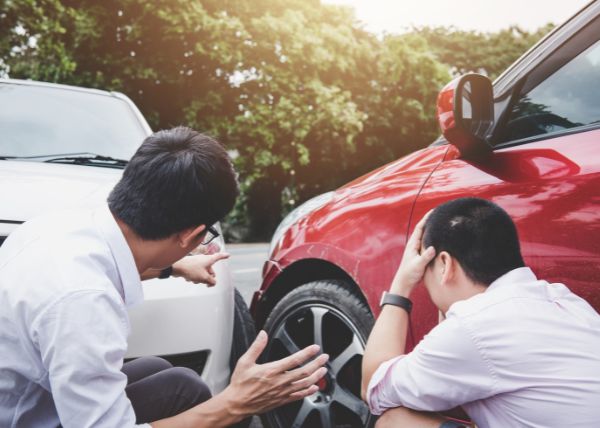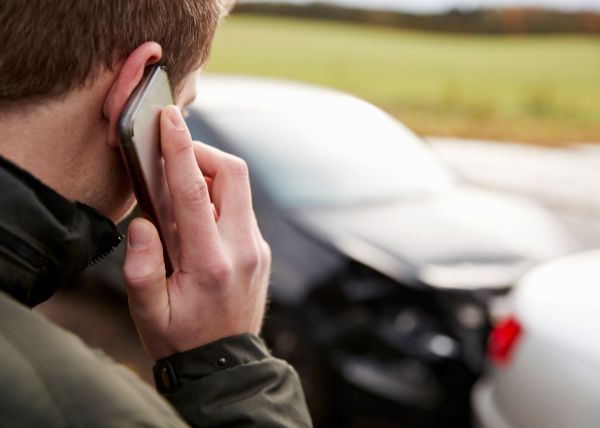Free Consultation - Call Now:
Free Consultation - Call Now:

Every state has its own set of laws and regulations when it comes to car accidents and insurance coverage. In Florida, the concept of being a "no-fault" state plays a significant role in how insurance claims are handled following an accident. But what does this mean for you as a driver in the Sunshine State?
Several states follow the concept of being a "no-fault" state, which significantly impacts how automobile accidents are handled from a legal standpoint. Understanding what it means to live in a no-fault state like Florida is essential for anyone involved in a motor vehicle accident.
Understanding these aspects of the no-fault system is crucial for ensuring that individuals injured in car accidents receive the compensation and care they need to recover from their injuries.
Florida is indeed a no-fault state when it comes to car accidents. This means that individuals involved in car accidents in Florida must first seek compensation through their own Personal Injury Protection (PIP) coverage, regardless of who was at fault for the accident.
In Florida, drivers are required to carry a minimum of $10,000 in PIP coverage to cover medical expenses and lost wages resulting from a car accident. This coverage is designed to provide prompt and efficient compensation for injured parties, without the need to prove fault or pursue a lawsuit against the at-fault driver. Florida has a few requirements, which are outlined on Florida's Highway Safety and Motor Vehicles site.
However, there are exceptions and limitations to Florida's no-fault system. Individuals who sustain serious or permanent injuries in a car accident may be eligible to pursue additional compensation beyond their PIP coverage by filing a lawsuit against the at-fault driver. Additionally, Florida law allows individuals to step outside the no-fault system and pursue a lawsuit against the at-fault driver if their injuries meet certain criteria, such as significant and permanent scarring, disfigurement, or disability.

While the no-fault system limits the circumstances under which you can sue for damages resulting from a car accident, there are situations where legal action may still be pursued.
In no-fault states, including Florida, individuals may file a lawsuit against the at-fault driver if their injuries meet certain thresholds defined by state law. These thresholds typically involve the severity or permanence of the injuries sustained. For example, injuries resulting in significant disfigurement, disability, or permanent impairment may surpass the threshold for filing a lawsuit.
While Personal Injury Protection (PIP) insurance covers medical expenses and lost wages up to the policy limits, it may not fully compensate you for all the damages incurred as a result of a car accident. If your economic losses exceed the limits of your PIP coverage, you may have grounds to file a lawsuit against the at-fault driver to seek additional compensation for medical bills, lost income, and other expenses.
In some cases, individuals injured in car accidents may pursue compensation for non-economic damages, such as pain and suffering, emotional distress, and loss of enjoyment of life. While no-fault states typically limit recovery for non-economic damages, exceptions may apply for injuries meeting certain criteria, such as permanent or significant impairment.
In the tragic event that a car accident results in the loss of a loved one, surviving family members may file a wrongful death lawsuit against the responsible party. Wrongful death claims seek compensation for damages such as funeral expenses, loss of financial support, and emotional suffering.
Determining whether you can file a lawsuit in a no-fault state requires a careful evaluation of the circumstances surrounding the accident and the extent of your injuries. Consulting with an experienced personal injury attorney can help you understand your legal rights and options for pursuing compensation beyond your PIP coverage.
At Heintz Law, our team of knowledgeable attorneys is dedicated to helping clients navigate the complexities of Florida's no-fault system and pursue maximum compensation for their injuries. If you have been injured in a car accident and have questions about your legal options, contact us for a free consultation at (941) 748-2916. We are here to advocate for your rights and help you secure the financial recovery you deserve.
Being involved in a car accident can be a stressful and overwhelming experience, especially in a no-fault state like Florida. Taking the right steps in the immediate aftermath of an accident can help protect your well-being and your legal rights. Here's what you should do:
By following these steps after a car accident in a no-fault state, you can help ensure your safety, gather essential evidence, and lay the groundwork for any insurance claims or legal actions that may follow. Remember to stay calm, cooperative, and focused on prioritizing your well-being and protecting your legal rights.
Our Florida personal injury attorneys are here to assist you if you've been involved in a car accident in a no-fault state like Florida. We understand the complexities of these cases and can provide experienced guidance and representation to help you navigate the legal process.
Contact Heintz Law today to schedule a free consultation and learn more about how we can help you seek fair compensation for your injuries and damages. Don't wait, reach out to us right away for the support and advocacy you need during this challenging time.
905 6th Avenue West
Bradenton, FL 34205
Phone: 941-748-2916
Fax: 941-746-4281
Map & Directions
Phone: 941-238-0093
Fax: 941-746-4281
Map & Directions
Attorney Advertising | Prior results do not guarantee a similar outcome. The information on this website is for general information purposes only. Nothing on this site should be taken as legal advice for any individual case or situation. This information is not intended to create, and receipt or viewing does not constitute, an attorney-client relationship. This site is protected by reCAPTCHA and the Google Privacy Policy and Terms of Service apply.